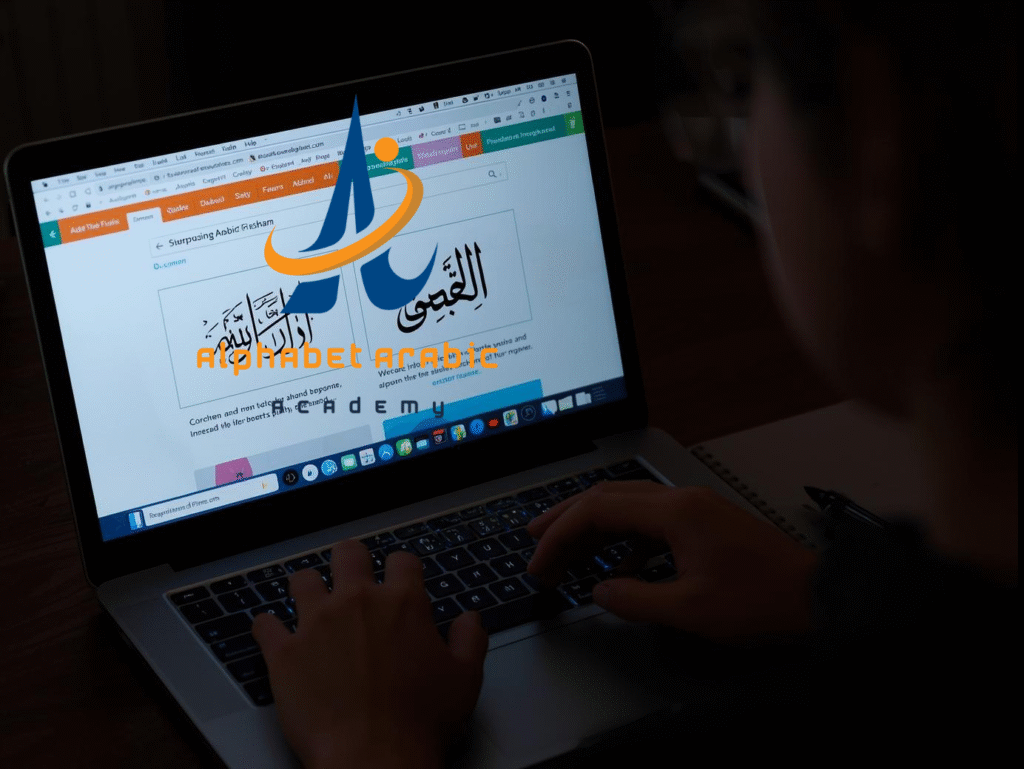Introduction to Learning the Quran and Arabic Online
The digital era has made it easier than ever to learn Arabic and Quran online. At Start your Arabic learning journey, we provide affordable, accessible, and expertly designed courses for students of all ages and skill levels. Whether you are a beginner or aiming for advanced proficiency, our online platform ensures a seamless learning experience. Mastering the holy text is a lifelong journey; start yours today with the ultimate Quran online guide for beginners.

Benefits of Online Arabic and Quran Learning
1. Convenience of Remote Learning Platforms
- Learn from the comfort of your home with live video sessions.
- Access lessons anytime with recorded sessions and interactive apps.
- Ideal for kids, adults, and families with busy schedules.
2. Affordable and Comprehensive Programs
- Affordable fee structures starting at $40 per month.
- Tailored programs for beginner, intermediate, and advanced levels.
3. Expert Instruction and Resources
- Qualified male and female instructors with extensive teaching experience.
- Access to interactive study materials, including e-books and quizzes.
Selecting the Best Online Platform for Arabic and Quran Learning
1.Key Points to Weigh When Choosing a Platform
- Curriculum Quality: Look for structured lesson plans.
- Instructor Expertise: Ensure the availability of qualified tutors.
- Flexibility: Check for customizable schedules.
2. Why Choose Start your Arabic learning journey
- Offers beginner to advanced Arabic and Quran courses.
- Affordable, interactive, and tailored to individual learning needs.
Curriculum and Teaching Methods for Online Arabic and Quran Courses
1. Structured Lesson Plans for Learning Arabic
- Learn the Arabic alphabet, words, and phrases step-by-step.
- Improve reading, writing, and listening skills with tailored lessons.
2. Interactive Teaching Techniques for Quran Studies
- Engage in Quran recitation with proper Tajweed.
- Memorize Ayat with Hifz programs and interactive quizzes.
Tutoring and Support Systems for Online Arabic and Quran Classes
1. Availability of Qualified Instructors
- Dedicated male and female tutors offering personalized guidance.
- Native speakers proficient in Arabic and Quranic studies.
2. Access to Learning Resources
- Downloadable e-books, audio lessons, and video tutorials.
- Access to interactive apps like Noor and Kalimah for enhanced learning.
Engagement Strategies for Effective Online Arabic and Quran Learning
1. Interactive Quizzes and Assessments
- Quizzes each week to assess comprehension.
- Immediate feedback to improve learning results.
2. Team Conversations and Cooperative Education
- Engage with other students in group sessions.
- Share insights and practice conversational Arabic.
Progress Tracking and Assessment in Online Arabic and Quran Lessons
1. Monitoring Student Performance
- Use of tracking tools to measure progress.
- Regular updates on reading, writing, and memorization milestones.
2. Assessment Criteria
- Focus on Arabic language proficiency and Quran recitation skills.
- Detailed feedback from instructors to improve performance.
Flexibility and Scheduling Options in Online Arabic and Quran Programs
1. Customized Learning Plans
- Tailored schedules to suit individual needs and availability.
- Choices available for individual and group lessons.
2. Learning Materials Available 24/7
- Study anytime with round-the-clock access to video tutorials and study materials.
Technical Requirements for Accessing Online Arabic and Quran Classes
1. Devices compatibility and internet connectivity
- stable internet connection.
- Functions effortlessly with laptops, tablets, and smartphones.
2. Software and Tools
- Platforms like Zoom, Skype, and interactive apps.
- Interfaces designed for effortless learning experiences.
Advantages of Learning Arabic and Quran Online Anywhere
1. Flexibility to Study at Your Pace
- Self-paced courses that allow you to study comfortably.
- Suitable for both children and adults with varying schedules.
2. Chance to Acquire Knowledge from Any Place
- Attend lessons from any place globally.
- Perfect for students with busy or mobile lifestyles.
Additional Benefits of Learning with Start your Arabic learning journey
1. All-Encompassing Plans for Every Student
- Achieve fluency in Arabic and Quranic studies with our tailored programs.
- Our aim is to unlock each student’s potential with innovative teaching methods.
2. Availability of Sophisticated Educational Resources
- Enhance your skills with interactive apps and cutting-edge tools.
- Learn to read, recite, and understand the Quran with proper pronunciation and Tajweed rules.
3. Culturally Rich Learning Experience
- Dive into the Arabic language with courses designed for every level.
- Understand Islamic teachings and Hadith to enrich your spiritual journey.
4. Family-Friendly Courses
- Programs designed for the entire family, including kids and adults.
- Learning made fun with engaging activities and games.
5. Guidance from Expert Instructors
- Learn from teachers with backgrounds in Azhar and other leading Islamic institutes.
- Benefit from one-on-one guidance with professional tutors.
6. Unique Highlights of Our Platform
- Enjoy interactive lessons that improve memory retention and comprehension.
- Access materials on any screen, from laptops to smartphones.
7. Flexibility and Accessibility
- Courses available worldwide, enabling learners to study at their own pace.
- Participate in trial classes to experience our methods firsthand.
8. Recognition and Achievements
- High ratings and positive feedback from students globally.
- Join a community of learners at one of the world’s leading online Arabic academies.
Start your learning journey today! Visit Start your Arabic learning journey for affordable and expert-led courses.

